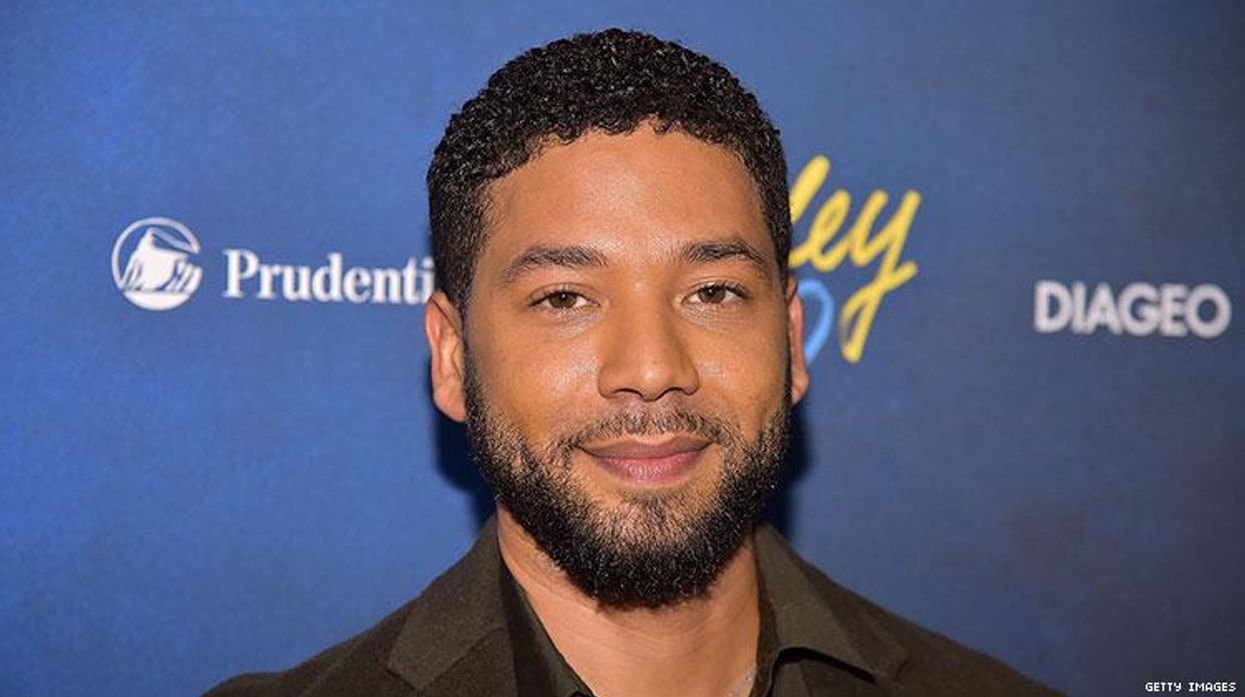On Tuesday morning, news broke that Empire actor Jussie Smollett had been hospitalized after two people physically assaulted the actor, fractured his rib, tied a noose around his neck, and poured bleach on him. In a statement, the Chicago Police Department confirmed that they are investigating the incident as a "possible hate crime."
After the assault, the New York City Anti-Violence Project released a statement emphasizing that "Jussie is not alone" in his experience. Gay Black men are among "some of the most vulnerable to violence in the LGBTQ community."
And the data backs up NYCAVP's statement. According to the latest numbers from the FBI, the number of hate crimes reported nationwide rose from 6,121 in 2016 to 7,175 in 2017. The most common types of hate crime incidents were based on the victim's race (59.6%), religion (20.6%), and sexual orientation (15.8%). Of the 7,175 hate crimes reported, 7,106 were single-bias incidents while 69 were based on more than one bias.
The FBI defines a hate crime as a "criminal offence against a person or property motivated in whole or in part by an offender's bias against a race, religion, disability, sexual orientation, ethnicity, gender, or gender identity."
NYCAVP's 2017 report on hate violence also showed a disturbing trend for LGBTQ people who experience violence. While the FBI's hate crimes report comes from data culled from law enforcement agencies, NYCAVP's report is comprised of data collected at nationwide anti-violence programs and LGBTQ people who report hate violence to the AVP.
AVP's annual report cited a 20% decrease in reported hate violence, meaning that fewer people have reported their experiences to AVP, not that there were fewer hate-motivated crimes. In a statement to Out, AVP said that the "normalization of hate violence" could be behind the decrease in reporting.
"People may be less inclined to report less severe incidents as they become a regular occurrence," the organization wrote. "That does not mean violence against LGBTQ people itself is lessening. On the contrary, in that same year we saw the highest amount of anti-LGBTQ hate movitated homicides in over twenty years of tracking hate violence against LGBTQ people."
While the number of hate crimes reported to AVP has gone down, the crimes that were reported were more severe. In 2017, AVP recorded 52 hate violence related homicides, the highest number ever recorded in 21 years of data collection and an 86% increase from 2017. Of those victims, 71% were people of color, 52% were trans or gender nonconforming and 40% were trans women of color. The number of homicides of LGBTQ cisgender men increased 400% from 2016 (4 incidents) to 2017 (20 reported homicides).
The rates of violence crimes involving weapons, sustained injuries and requiring medical attention increased, as well. Forty-six percent of LGBTQ people who experienced hate violence sustained an injury (up from 31% in 2016), 42% sought medical attention (up from 23% in 2016) and 27% reported that their attackers used weapons (up from 13% in 2016).
While Smollett said he does not know his attackers, that is actually outside the norm for LGBTQ+ people who experience violence. According to NYCAVP, 57% of LGBTQ people who experience hate violence know the person who causes them harm, usually a co-worker (22%), a relative or family member (21%) or a landlord or neighbor (20%). Hate crimes most often happen in a person's private residence (29%) or workplace (24%).
If you or someone you know has experienced harassment or assault, you can report it to AVP on its website or by calling (212) 714-1141.
Related | Actor Jussie Smollett Hospitalized After Homophobic Attack






























I watched the Kid Rock Turning Point USA halftime show so you don't have to
Opinion: "I have no problem with lip syncing, but you'd think the side that hates drag queens so much would have a little more shame about it," writes Ryan Adamczeski.